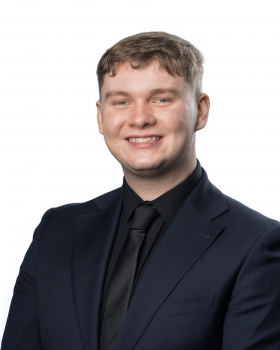Business
Patents
BUSINESS OBJECTIVES ACHIEVED

Forbes Solicitors' patents solicitors provide expert advice on all aspects of patent law, from patent applications and portfolio management to infringement disputes. Our experienced patent lawyers can help you to protect your inventions and innovations, ensuring that you receive the appropriate recognition and financial reward for your efforts. We work with a range of clients, from individual inventors to large corporations, to ensure that their patents are managed and enforced effectively.
What is a Patent
A patent is a form of intellectual property that grants the owner exclusive rights to make, use, and sell an invention. which is a product or a process that provides, in general, a new way of doing something, or offers a new technical solution to a problem. Patents provide the inventor with a limited period during which they have exclusive rights to their invention. Patents, like any other form of property or business asset, can be bought, sold or licensed.
A patent provides an inventor of a product or process the right to prevent others from making and selling the same invention without the patent owner's permission for up to 20 years, provided that annual renewal fees are paid. For a patent to be successfully registered, it is necessary for the inventor to show that the invention:
- is new;
- involves an 'inventive step'; and
- is capable of industrial application.
The invention must therefore have never been made public in any way before the application is filed. The inventive step taken must be one which is not obvious to a person skilled in the art concerned and the invention must be one that can be made or used in any kind of industry. Applications are notoriously lengthy (on average, UK applications take around 5 years) and have a low success rate.
Each patent application is published, even where it is not successful, so for inventors looking to keep their invention secret, they may consider that implementing confidentiality agreements (otherwise known as Non-Disclosure Agreements) in respect of the trade secrets may be of more benefit than applying for a patent. For more information on trade secrets, click here.
Similarly, the invention may not be something that it patentable, for example because it is a scientific theory. Alternatively, if the product has a short shelf life, the long application process may not appropriate and time may be better spent developing the product launch and marketing.
Why choose our patents solicitors?
Forbes Solicitors patent lawyers have extensive experience in all aspects of patent law, from drafting and filing patent applications to enforcing and defending patents in litigation. We provide tailored advice and support to clients across a range of industries, helping them to protect their intellectual property and achieve their commercial goals. Our team is committed to delivering exceptional service and achieving the best possible outcomes for our clients. Choose us for expert guidance and representation in all patent matters.Who do our patents solicitors help?Our patent solicitors help individuals, startups, and businesses protect their intellectual property rights by obtaining patents and providing legal advice on patent infringement and licensing.
How can our patents lawyers help?
Our patent lawyers can help you protect your intellectual property by providing legal advice and assistance in obtaining patents, trademarks, and copyrights. We can also help you enforce your rights against infringement and defend against claims of infringement. Our team has extensive experience in various industries and can provide tailored solutions to meet your specific needs. Contact us today to discuss how we can help you protect your valuable intellectual property.
Get in touch with our teams today for a chance to speak to experts with vast experience in providing legal services for Patents cases to clients all over the UK..
Contact Us
Get in touch to see how our experts could help you.
Contacting Us
Monday to Friday:
09:00 to 17:00
Saturday and Sunday:
Closed
FAQs
How do I apply for a patent?
To apply for a patent you must first conduct a search to ensure your invention is new and not already patented. Then, you can file an application with the Intellectual Property Office (IPO) and pay the required fees. The IPO will examine your application and, if approved, grant you a patent. It is recommended to seek professional advice from a patent solicitor or agent to ensure your application is complete and meets all requirements.
How do I enforce my patent rights?
To enforce your patent rights you can take legal action against anyone who infringes on your patent. This can include seeking an injunction to stop the infringing activity, as well as claiming damages for any losses you have suffered as a result of the infringement. You may also be able to negotiate a licensing agreement with the infringing party. It is recommended to seek legal advice before taking any action.
Can I use someone else’s patent?
No, you cannot use someone else's patent without their permission. Doing so would be considered patent infringement, which is illegal under UK law. If you want to use someone else's patented invention, you must obtain a licence or permission from the patent owner.
Can I obtain a patent and keep my invention secret?
No, obtaining a patent requires disclosing the details of the invention to the public. However, it is possible to keep certain aspects of the invention confidential by filing a non-disclosure agreement with potential partners or investors.
What happens when patent protection expires?
When patent protection expires, the invention becomes part of the public domain and can be used, manufactured, and sold by anyone without the need for permission or payment of royalties to the original patent holder. the standard term of a patent is 20 years from the filing date of the application
Who owns a patent UK?
The owner of a patent is the person or entity that has applied for and been granted the patent by the UK Intellectual Property Office. The owner has exclusive rights to use, sell, and licence the invention covered by the patent for a set period of time. The owner can also take legal action against anyone who infringes on their patent rights.
How long does a patent last?
A patent typically lasts for 20 years from the date of filing, provided that maintenance fees are paid to keep the patent in force.
What can be patented?
Inventions that are new, inventive, and have industrial applicability can be patented. This includes products, processes, machines, and compositions of matter. However, certain things cannot be patented, such as scientific theories, mathematical methods, and methods of medical treatment. Additionally, inventions must not be contrary to public policy or morality.
What is the cost of obtaining a patent?
The cost of obtaining a patent varies depending on the complexity of the invention and the services of the patent solicitor. The official fees for filing a patent application start at £60 for online filing and £75 for paper filing. However, the total cost can range from £3,000 to £10,000 or more, including solicitor fees, search fees, and examination fees.
Can I patent my idea or concept?
Yes, you can patent your idea or concept . A patent is a legal right granted to an inventor for a new and inventive product, process or method. To obtain a patent, your idea or concept must be novel, non-obvious and have industrial applicability. You must also file a patent application with the UK Intellectual Property Office and meet other requirements. Once granted, a patent gives you exclusive rights to use, sell and licence your invention for a certain period of time.
What is the difference between a patent and a trademark?
A patent is a legal protection for an invention, giving the owner exclusive rights to make, use and sell the invention for a certain period of time. A trademark is a symbol, word or phrase used to identify and distinguish goods or services from those of others. It is used to protect the brand name and reputation of a business.
Can I license my patent to others?
Yes, as the owner of a patent, you have the right to licence it to others. This means that you can give permission to someone else to use your invention in exchange for payment or other benefits. Licensing agreements can be exclusive or non-exclusive, and can be tailored to suit the needs of both parties. It is important to seek legal advice when drafting a licensing agreement to ensure that it is fair and protects your rights as the patent owner.
What happens if someone infringes on my patent?
If someone infringes on your patent you can take legal action against them. This may involve seeking an injunction to stop them from using your invention, as well as claiming damages for any losses you have suffered as a result of their infringement. It is important to seek legal advice from a patent lawyer to ensure that your rights are protected and that you take the appropriate steps to enforce your patent.
Need more help?
Get in touch to see how our experts could help you.
Our dedicated Intellectual Property team
Partner and Head of Commercial
Commercial
![]() Lancashire
Lancashire
![]() 0333 207 1134
0333 207 1134

Contact Us
If you have a general enquiry then please fill in your details and someone will contact you.
Contacting Us
Monday to Friday: 09:00 to 17:00
Saturday and Sunday: Closed






